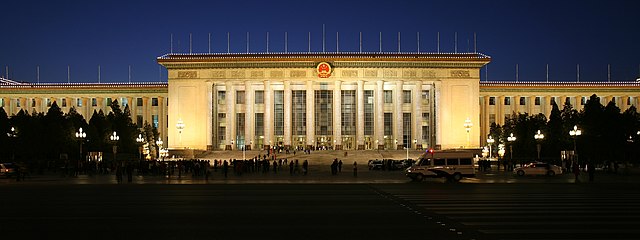Socialist law or Soviet law are terms used in comparative legal studies for the general type of legal system which has been used in socialist and formerly socialist states. It is based on the civil law system, with major modifications and additions from Marxist–Leninist ideology. There is controversy as to whether socialist law ever constituted a separate legal system or not. If so, prior to the end of the Cold War, socialist law would be ranked among the major legal systems of the world.
Bulletin at the Elections to the Supreme Soviet of the USSR (1946). There is only one candidate on the bulletin.
A communist state, also known as a Marxist–Leninist state, is a one-party state that is administered and governed by a communist party guided by Marxism–Leninism. Marxism–Leninism was the state ideology of the Soviet Union, the Comintern after Bolshevisation and the communist states within the Comecon, the Eastern Bloc, and the Warsaw Pact. Marxism–Leninism currently still remains the ideology of a few parties around the world. After its peak when many communist states were established, the Revolutions of 1989 brought down most of the communist states, however, it is still the official ideology of the ruling parties of China, Cuba, Laos, Vietnam, and to a lesser extent, North Korea. During most of the 20th century, before the Revolutions of 1989, around one-third of the world's population lived under communist states.
The flags of the Communist Party of Vietnam that were flown besides the Vietnamese national flags in Hanoi, Vietnam
The meeting place of the Chinese National People's Congress



